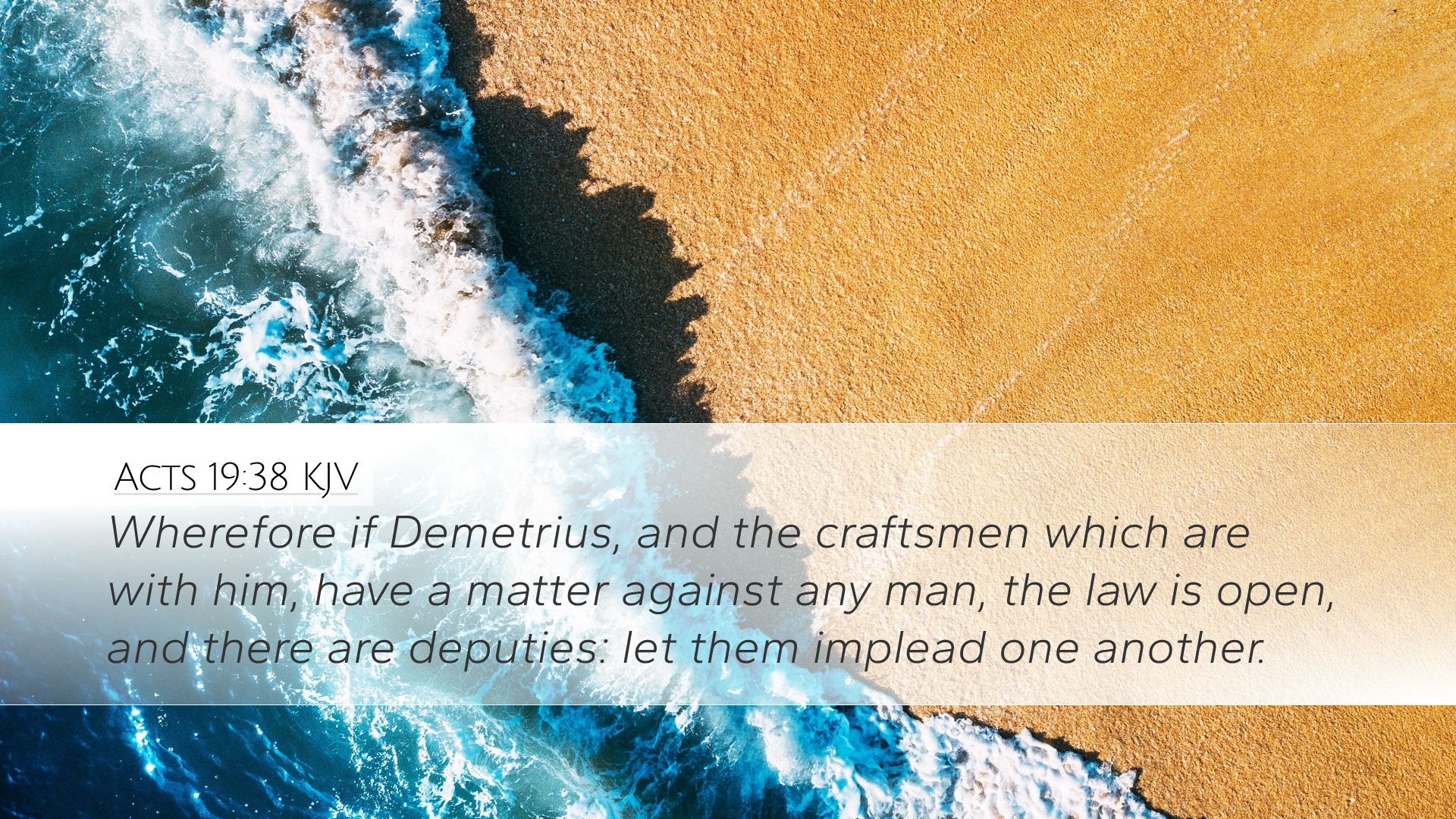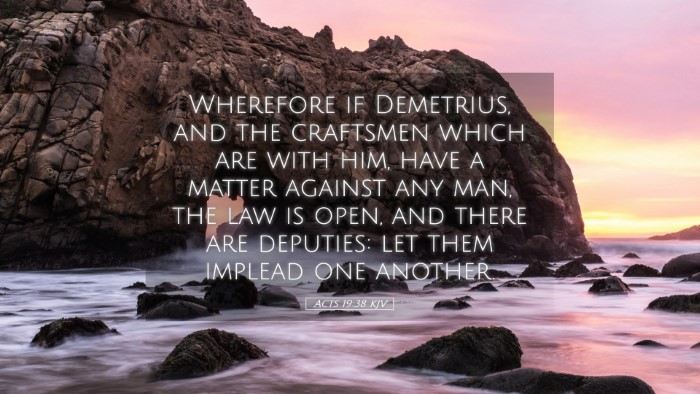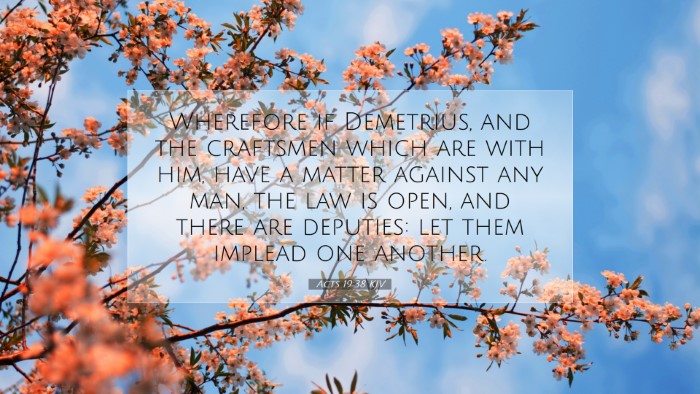This passage is situated within the narrative of Paul's ministry in Ephesus, where considerable conflict arises due to the rise of Christianity opposing the established trade of idol-making. The verse provides a glimpse into the legal framework and civic responsibilities that governed such disputes. The call for legal recourse illustrates a critical moment of tension for the early church amidst prevailing societal norms.
1. Legal Context and Civic Responsibility
Matthew Henry emphasizes the importance of justice and the rule of law. He points out that Demetrius, a silversmith, and other craftsmen who felt threatened by the growth of Christianity had the right to address their grievances through lawful means rather than resorting to mob violence. Henry states, "The law is open," which suggests that justice can and should be sought through appropriate channels.
Albert Barnes elaborates on the implications of invoking lawful action. He remarks that Christians are to model behavior that honors civic structures while remaining steadfast in their faith. In a context where the protection of one’s rights was paramount, Christians were challenged to navigate their existence both in submission to earthly authority and allegiance to divine truth.
2. The Role of Authority
Adam Clarke highlights the role of civil authority in resolving disputes. He notes that the presence of "deputies" signifies an organized system of governance, reinforcing the notion that believers were encouraged to engage civil magistrates to settle disputes rather than taking matters into their own hands. Clarke’s insight reminds that while the early church was often persecuted, there were protocols established for addressing grievances.
3. Ethical Considerations
Another layer to consider in this passage is the ethical dimension of the situation. The craftsmen's actions stemmed from economic insecurity and fear of losing their livelihoods due to the diminishing influence of idolatry. This indicates that the historic tension between faith and economic interests is perennial. Pastors and theologians should note that while the church grows, it also influences the surrounding culture, often provoking backlash from those whose interests are threatened.
In this regard, Barnes suggests that the reaction of the craftsmen reveals underlying vulnerabilities within societal structures when confronted by transformative spiritual movements. It poses questions about how contemporary churches interact with modern commerce and socio-economic dynamics.
4. Application for Modern Believers
For today’s believers, this passage serves as a paradigm for engaging conflict in a manner that honors both God and the legal structures of society. Henry remarks that while the Christian faith may incite opposition, it also calls for a responsible approach to disagreements, advocating for dialogue and lawful procedures over chaos.
- Seek Civil Remedies: Believers should follow legal frameworks to address injustices that arise in their communities.
- Uphold Evangelical Integrity: Even in civil matters, Christian conduct must reflect the principles of love and humility.
- Anticipate Opposition: Understand that growth in faith can result in conflict, and be prepared to respond graciously and lawfully.
5. Historical Significance
The tensions witnessed in Ephesus serve as an instruction for the church's historical relationship with culture and commerce. As Clarke notes, understanding the context of early Christian communities can evoke meaningful reflections on modern ecclesiastical dynamics. The invocation of legal rights by craftsmen resonates with how contemporary society often polarizes faith and commerce.
Conclusion
In summary, Acts 19:38 invites pastors, students, and theologians to consider the profound implications of legal and moral conduct in the face of adversity. It challenges Christians to be proactive in upholding justice while embodying the principles of grace and truth. As we reflect on this passage, let us learn the importance of honoring both divine mandates and societal frameworks in our journey of faith.


